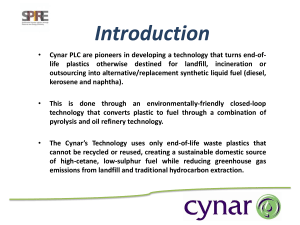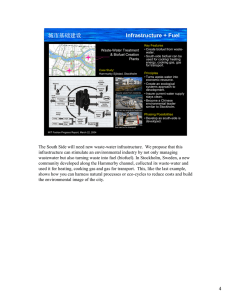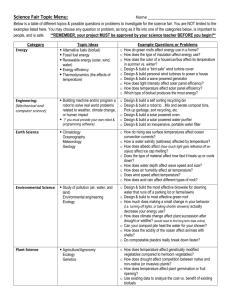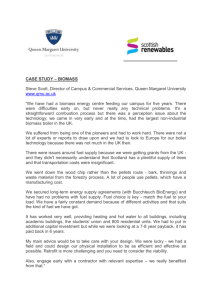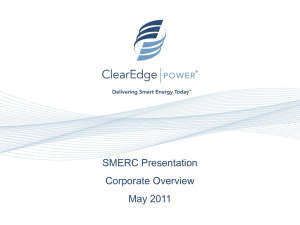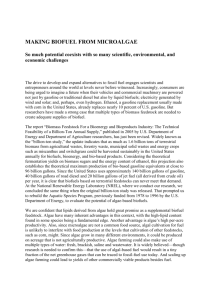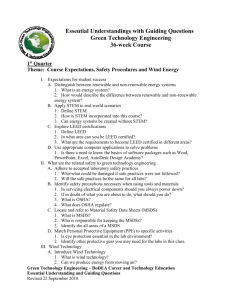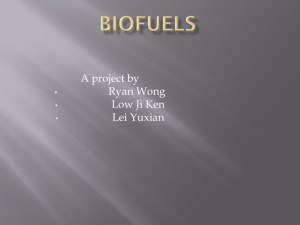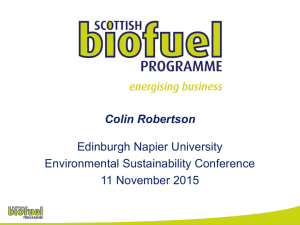Identification of needed competences
advertisement
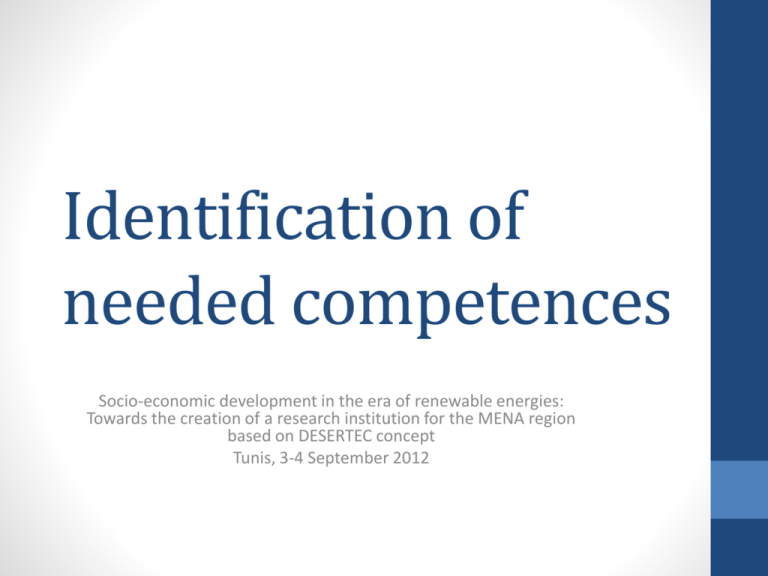
Identification of needed competences Socio-economic development in the era of renewable energies: Towards the creation of a research institution for the MENA region based on DESERTEC concept Tunis, 3-4 September 2012 RE motivations • • • • • • Enhance energy security Reduce carbon dioxide emissions Reduce energy price volatility Improve energy access Technology development Job creation (development of manufacturing industry) • Policy to promote job creation • Support for the acquisition of the necessary skills Data In 2010 3.5 Millions positions (REN21) Of these Jobs: 630 000 Wind Industry 350 000 Solar PV industry 1.5 Millions: Biofuel Location Majority in: China, Brazil (Ethanol), Germany, India, USA, Denmark RE are more labor-intensive than fossil fuel technologies, with PV technologies accounting for the highest number of Job-Years per GWh over the lifetime of the facility Job.Years/ GWh • • • • • • • • Solar PV: 0.85 Small Hydro: 0.27 Geothermal: 0.25 Solar thermal: 0.22 Biomass: 0.21 Wind: 0.19 Nuclear: 0.18 Natural Gas: 0.11 / 0.12 Job nature • Jobs related to fuel free technologies (Large scale RE Electricity, Domestic and industrial applications of RE) Installation and /or Plant construction Manufacturing Administration / Management Project design Operation and Maintenance Decommissioning • Jobs related to fuel based technologies (biofuel for transport industries) Feedstock Production of Biofuel Distribution of Biofuel Job classification • Direct Jobs Feedstock conversion Manufacturing Project development (including site preparation and installation) Operation and Maintenance • Indirect Jobs Supplying the RE industry Industrial input sectors in the production, operation and Maintenance Positions in Government Regulatory Body Consultancy firms Research organizations • Induced Jobs Created when wealth is generated, spent elsewhere in the economy (Expl. Stimulating consumption / Tourism …) Fields of activity • • • • • • Feedstock production Local / Export Industries Project development Installation Operation and Maintenance Decommissioning Fuel free technology The case of PV industry Processing of Raw Material • • Engineers Technicians Installation / Plant construction Manufacture of Cells and Modules • • Engineers technicians • • • • • Project development analyst Wholesaler Solar PV system designer Construction workers Meteorologists Operation & Maintenance • • Technicians Maintenance staff Decommissioning • • Construction workers Material recyclers Fuel based technology • Biomass based electricity generation • Liquid biofuel for transport Feed stock production Refinement of ethanol and Transesterification of biodiesel Biofuel distribution • Agriculture Jobs (farmers, seasonal labor) • Collection of residues and their pretreatment • • • • • Logistic officers • Machine Operators Engineers Chemists Machine Operators (depending on fuel, Technology used) Skills • In Germany: RE: 82% have vocational training 40% university degree Whole Industry: 70% have vocational training 10% University degree • High Skills: Engineering Meteorology Project Development R&D • Unskilled: Installation / Construction Indirect Jobs: Transport / Administration Collection of fuel feedstock (farmers / Seasonal Labors) Skills • Similar to those needed in the conventional work force • Specific to certain RE technologies • Appropriate training • Education policy How to promote employment benefits of RE • Stable deployment policy • Financial support for RE Technology • Carbon dioxide pricing & Elimination of subsidies for conventional power generation • Provision of financial support • Labor market policy • Implement training programs: intensive vocational tailor made Courses directed towards specific needs of employers • Policies for Education and Training Education delivered at the level of companies: New vocational training programs on RE Adjustment of existing programs Formal education sector: Introducing new programs (degrees in RE) Adjusting those already existing programs by adding modules related to RE • Industrial Policy • Policy aimed at deployment • Increase industry ability to compete in national and International Market Target group • The programs developed need to extent beyond the workforce in the direct manufacturer and installation and also addresses employers and supporting institutions: • • • • Government agencies Ministries Financial institutions Other business services / private sector • Both vocational and formal education must provide • Specialized education & Trainings for RE Industry • Broader education requirements in Engineering & Management The competitiveness of a domestic industry depend on the availability and skills of the labor force and measures to ensure this. Which subjects for training? • • • • • • • • • • • • • • • • Energy Geopolitics Energy market / Price making Energy strategy / Optimization of energy systems Energy Policy Investment choices Financing tools for RE projects Available Resources (solar / Wind/ Biomass …) Site assessment Thermal power plants Physics of solar collectors Energy conversion Energy storage Operation & Maintenance Electric Power transmission Economic aspects Social & Strategic aspects Beyond the DESERTEC concept • • • • • Energy saving in dwellings / ecobuildings Energy conversion and management for domestic applications Energy conversion for Industrial applications Energy conversion for Agriculture and in rural area Energy efficiency Thank you for your kind attention
